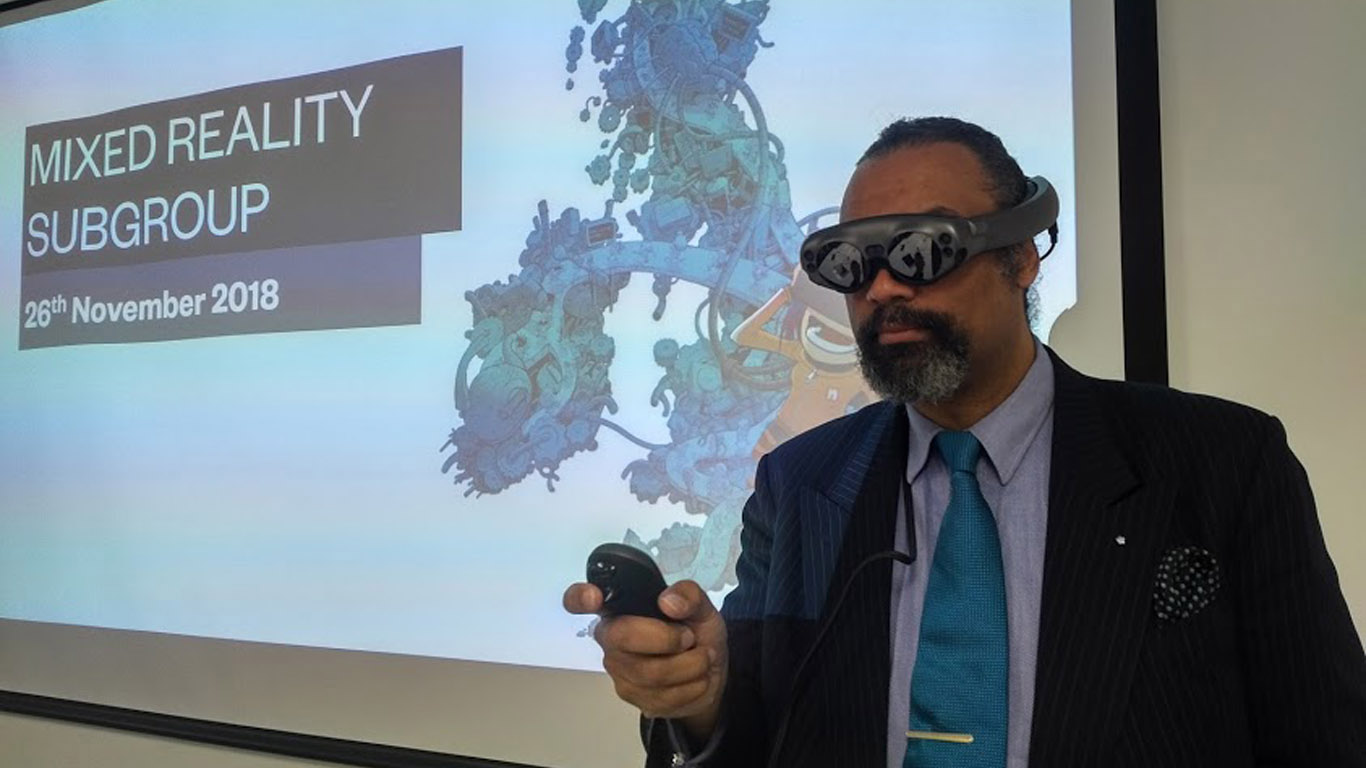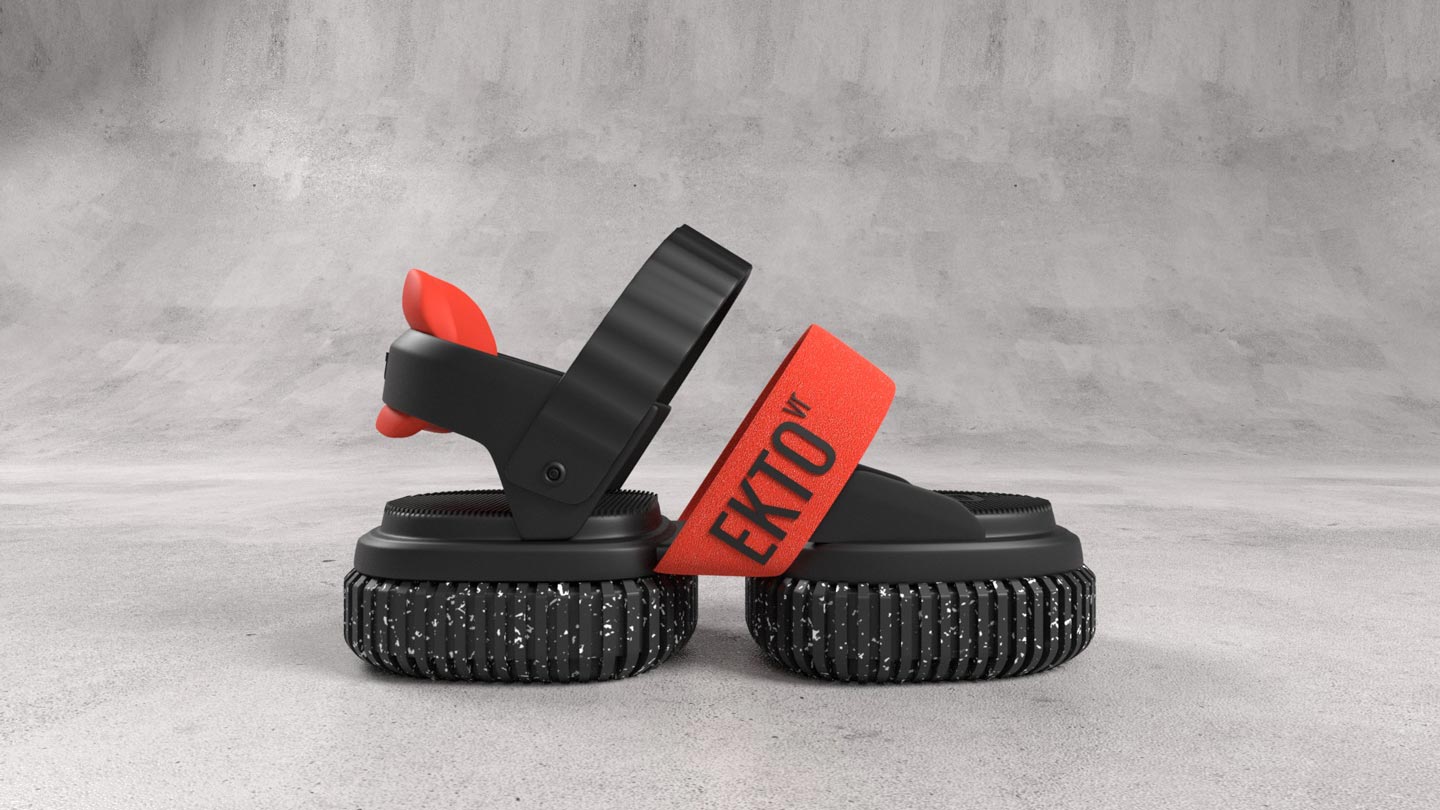Kevin Williams shares with us his expertise in the LBVR sector
Some days ago, I had the opportunity to briefly interview Kevin Williams, an expert in location based virtual reality (LBVR, that is VR arcades).
LBVR is a trending topic in the VR ecosystem: since VR is still too expensive, it is reasonable that people can play it for few bucks without having to buy the full rig, and that’s why a lot of VR arcades are popping up. As I have written in my early predictions, I think that VR arcades are a bit overhyped and sooner or later this bubble will burst. Anyway, they are still an important topic to talk about.
Here you are our exchange:

Hi Kevin, present yourself to my readers!
I am Kevin Williams, specialist consultant in the Out-of-Home entertainment sector. KWP works with developers, operators and investors in the immersive entertainment scene, ranging from theme parks, leisure entertainment and amusement. I also publish The Stinger Report and write for a number of trade pubs between conference presentations.
What is “The Stinger Report”?
Started in 1994, the Stinger Report is a scurrilous newsletter that covers in depth all aspects of the interactive entertainment arena, focused on immersive entertainment and new tech trends – celebrating 25-years as one of the longest and widely circulated reports in this sector.
When and how did you start getting interested in the LBVR market?
I have worked in the amusement industry in some form all my career – and have focused on immersive tech trends. I really started in LBE back in the 1990’s during its last boom, and while at Disney focused on the skills needed to define the application of this approach to facility entertainment through the DisneyQuest project and subsequent commissions.
What are the different types of out-of-home VR entertainment centers?
We see in the LBE VR sector the tech being applied to Family Entertainment Centers, Urban Entertainment Centers, stand-alone VR arcades, Theme Parks, and Leisure Entertainment venues. With even Pop-up installations in the cinema and shopping mall scene.
There is a lot of hype saying that LBVR centers are very successful because they let people try VR with few bucks, but I also know that many of them are actually struggling. Where is the truth?
When we see a boom in the sector we see winners and losers – but it can be a mistake to look at the losers as representing the whole. There is also a danger to look at the transition in establishing the business as an example of struggle. When in fact it is natural to see a successful sector adopt a new medium and try and shape it to meet its needs. As seen with the IMAX VR debacle, the danger is to have too little information on the market when trying to support it.
What are your pieces of advice about how to make a VR arcade profitable?
Flexibility of design and business approach, establish a repeat visitation, ensure that you have a wide mix of experiences to suit a diverse audience and most importantly, constantly iterate your design and brand – this is not a static market.
The key areas to focus on regarding starting a VR arcade is research of the audience in your areas and competing draws on their leisure spend. Then it’s the need to appropriately retain the audience you attract, and lastly it the ability to be flexible to trends and interests to keep relevant.

Money apart, what are the main things to care about when opening a VR entertainment center?
A feasibility study of the hoped market will allow you to focus on the people that will be paying your wages, and the need to create the right mix and have a business model that does not depend on one aspect of the audience are key to success.
Regarding player retention the use of special payment systems (card swipe) allows you to personalize and customize the player experience and act as a draw. This should be linked to a streaming or live capture system (like LIV and BlueprintVR) that offers engagement and builds interest.
What are in your opinion the best out-of-home VR experiences out there?
Dreamscape is a strong contender for one of the best Arena-Scale experiences, followed by The VOID and SPACES Terminator. Virtual Rabbids is a great contender for the best in the VR ride experience and I was impressed by a number of the new tethered VR enclosures such as Hologate and Chaos Jump.
Will widespread VR lead to the shut down of many VR entertainment centers?
Widespread adoption in consumer applications will force the VR entertainment scene to up its game and move on to the next technology application. That said we were told that consumer VR would be ubiquitous by 2016 and that VR entertainment centers would not work – now all we see is consumer VR slowing in consumer interest while VR entertainment centers prove a strong interest for investment.
What about AR and MR location based entertainment centers? Are there some of them? Will they come?
We have seen HADO in Japan establish the concept of AR entertainment with their PvP game and their new HADO Kart augmented play experiences. Likewise BattleVerse in Canada has also proven a strong hit – and we have seen another AR karting experience open in Europe. This looks to be an aspect of the Out-of-Home entertainment scene that our sector will drive long before we see true consumer adoption.
What will be the future of LBVR?
The creation of a XR combined immersive experience seems to be driving much investment – from the unique development of projection mapped attractions, water based VR experiences, or the use of immersive projection enclosures that do not need headsets.
This market has already started to move on to the next generation in headsets, with a dedicated AR head-mount launched recently for commercial entertainment. The tech seems to find Out-of-Home entertainment a better proving ground than consumer currently.

What about your future, instead?
We are working on the next book in our series on The Immersive Frontier, and have been hard in the trenches looking for the next applications. This has also brought us into contact with new clients wanting to deploy their technology into the commercial entertainment scene. As well as the drive towards new facilities mixing the realities to enthral their guests. We also are looking at presenting at a number of conferences in the coming months – and have a trip to Japan scheduled to review developments in this sector.
Is there something else you want to say to my readers?
It’s been a pleasure to be able to share our observations, and if any of your readers would like to know more they can contact me and I will place them on the subscription to our news service.

I really wish to thank Kevin Williams for these very interesting insights on the LBVR industry. I especially found worth sharing his lessons on how to make a VR arcade center profitable and sustainable: it seems that a thorough preliminary study and subsequent flexibility are the keys to success.
As always, if you have opinions to share about this post, feel free to reach out on my social media channels or here in the comments section! 😉
(Header image by Kevin Williams)
Disclaimer: this blog contains advertisement and affiliate links to sustain itself. If you click on an affiliate link, I'll be very happy because I'll earn a small commission on your purchase. You can find my boring full disclosure here.



